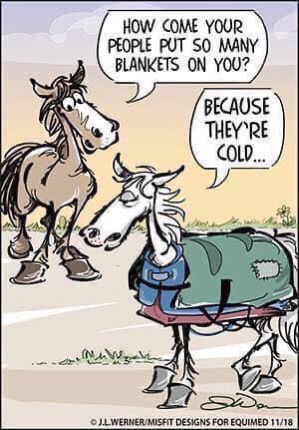Two easy keepers in northeast NC. Didn’t realize they had gotten so fat this summer. Have both of them muzzled and they are eating ration balance and winter rye grass/pasture.
We built barn for ventilation rather than warmth but they do have access to the barn 24/7 and the north and west sides are closed off to wind.
Maybe because I haven’t had them on hay yet, their winter coats are coming in great. We’ve had nights in the 30’s and they aren’t cold or showing a need for rugs, yet.
Still warm days here, usually 50’s or above. But forecast shows a few nights in the 20’s coming up next week.
I’ve never had horses this time of year not already on hay. Just curious for input on how to manage them the next 4-6 weeks while rye grass is still viable. Would you hold off on hay and blanket for good measure on the chilly nights? Or start feeding a few flakes at night? Or some other combination thereof?
I’ve put a call in to my vet but haven’t had a reply yet. Curious for your insights. Thanks in advance!





